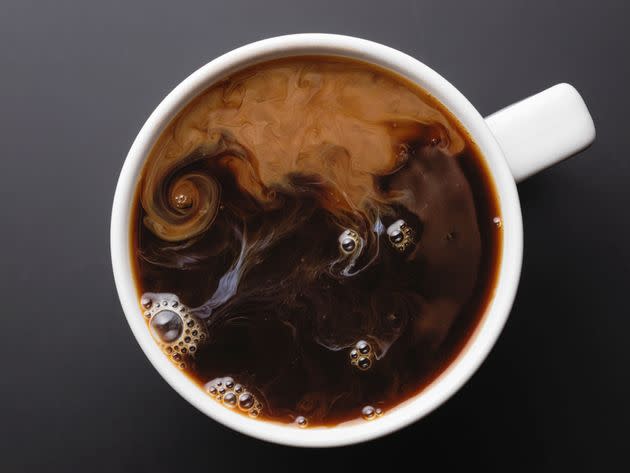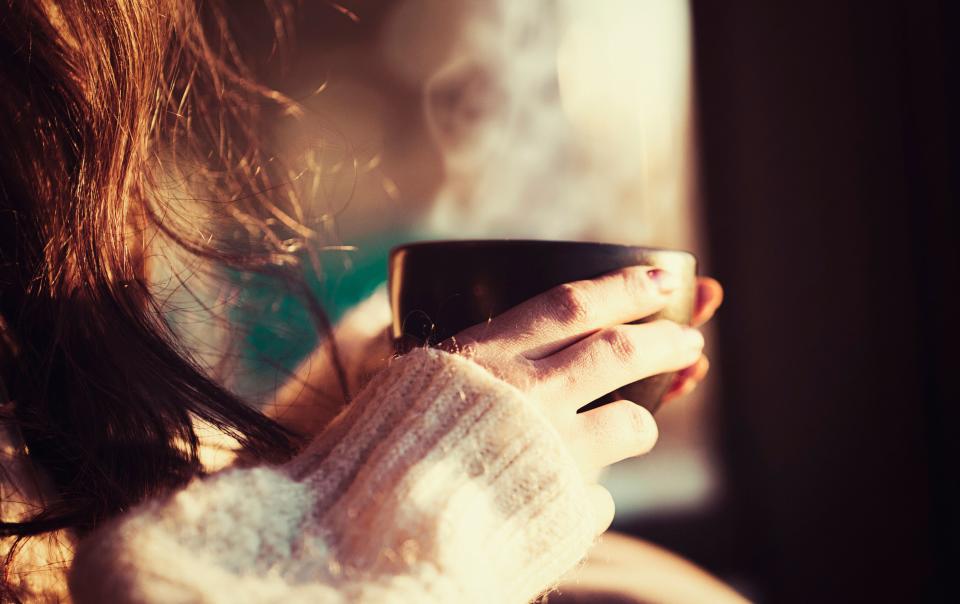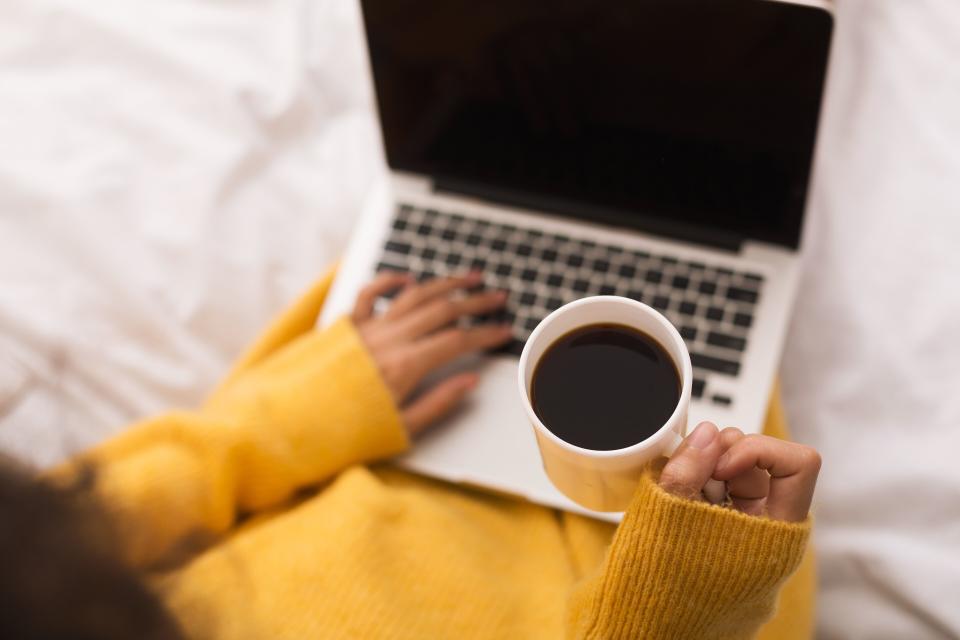Is It Better To Drink Coffee In The Morning Or Afternoon For Work?

Those who rely on coffee to stay alert at work are very familiar with its benefits. Coffeestimulates the body’s nervous system, helping us to concentrate better and quicken reaction times.
Of course, there are downsides, too. Those who consume a lot of caffeine may also experience negative side effects, including rambling flow of thought and speech, muscle twitches, nausea, anxiety and insomnia.
But we do know that feeling alert after a cup of coffee can last up to six hours, on average. That’s why timing matters, too. So when is the best time of day to drink coffee if you want the best possible boost at work? Here’s what researchers and nutritionists say:
Your ideal timing may be influenced by your age...
For tired young adults, a morning coffee may help boost performance. One study published in 2016 involved college students who were regular coffee drinkers. Researchers tested them on memory exams at 6 a.m. and 2 p.m., and found that those who were given a coffee drink before their morning exams showed improved performance. Those who were given coffee before the afternoon tests did not.
The best advice I give to my patients is try out what is best for you.Zhaoping Li
But don’t write off the benefits of afternoon coffee. Older adults tend to experience a decline in memory performance from morning to afternoon, but a 2002 study in people over 65 found that a single cup of coffee, ingested 30 minutes before a test, completely erased this decline.
...but it also depends on your body’s particular biology.
The caffeine in coffee goes into effect shortly after consumption, so consider when you need to be most “awake” before you have a cup.
“If you are someone who has average tolerance to caffeine, then after having coffee, whether it’s in the morning or afternoon, you should feel more alert and focused for the next one to six hours,” said Tamar Samuels, a registered dietitian and co-founder of Culina Health. “You can be strategic about when you have your caffeine depending on when you need to feel most alert throughout the day.“
How coffee ultimately makes you feel while working depends on your personal biology.
“What we’re learning is every cell of our body has its own biological clock. If you use caffeine... to wake your brain up, it doesn’t necessarily mean the rest of your body is on the same time zone. You may be up, but you may feel sluggish,” said Zhaoping Li, a professor of medicine and chief of the division of clinical nutrition at the University of California, Los Angeles. “How our body responds to food, nutrients, including caffeine, it is highly variable. Each individual may have their own sweet spot.”
Li said there is not conclusive research on whether a morning or afternoon coffee is best for all professionals. “We try to treat everyone the same in a sense, but that’s not the case,” she said, noting that age, ethnicity and culture can all affect which time of day is best for you to drink coffee for your job performance.
“That makes it very confusing for consumers, so the best advice I give to my patients is try out what is best for you,” she said.
To do this, Li suggests drinking coffee at different hours of the workday and seeing how you feel. If you don’t feel anything at all, she said, then you may have to try other times or timing it differently with any medications you may be taking.
But if you feel heart palpitations, insomnia or jittery anxiety, or you are particularly sensitive to caffeine or don’t plan to pull an overnighter, then make sure not to drink coffee too late in the workday.
“As a rule of thumb, the closer to consumption, the more alert and focused you will feel,” Samuels said. “People who are more sensitive to the effects of caffeine should limit their consumption to the mornings to prevent sleep disturbances, anxiety, rapid heart rate and other symptoms of having too much caffeine.”
This article originally appeared on HuffPost and has been updated.



